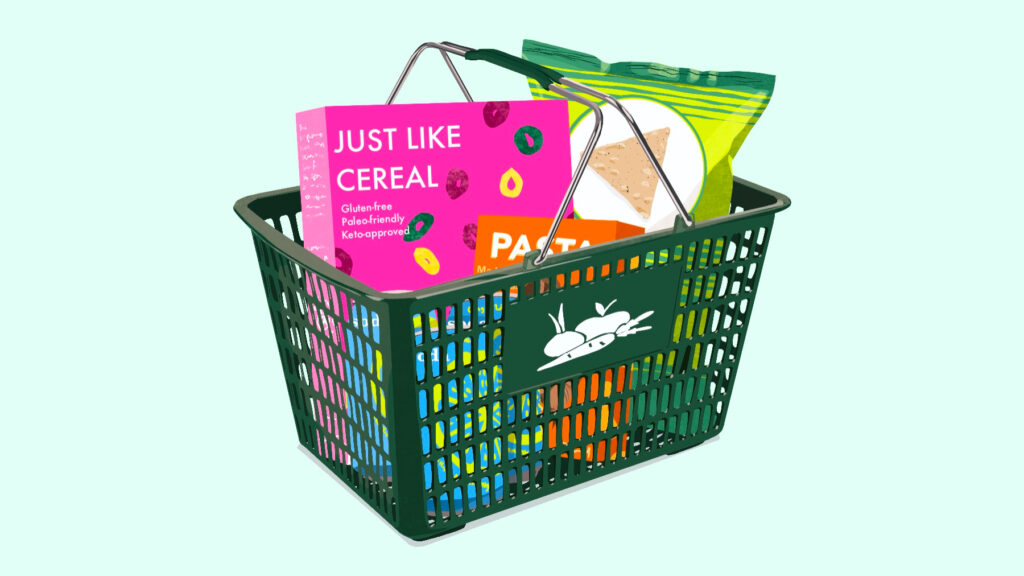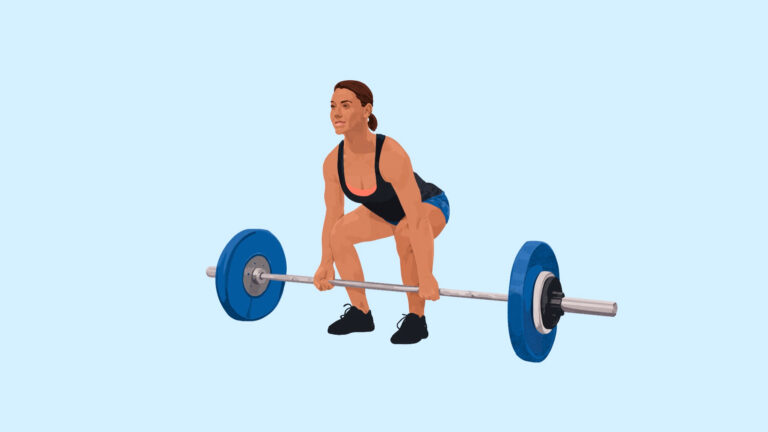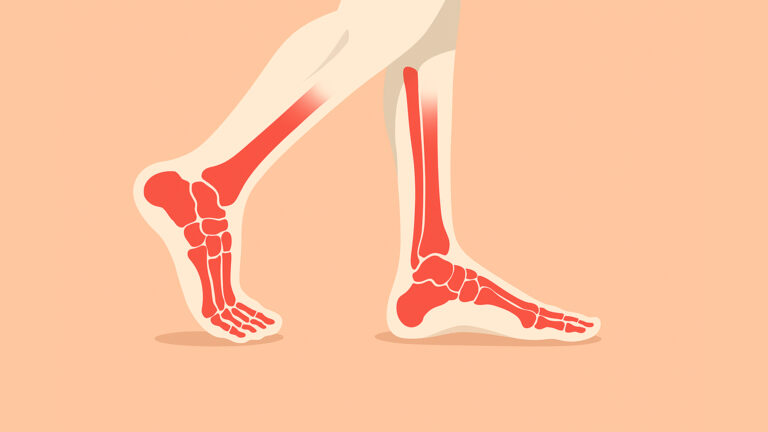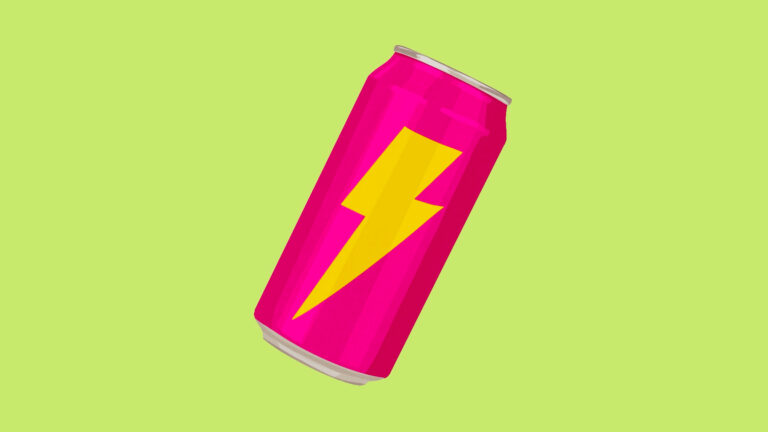
Powering private-label personalized lab testing.
Challengers
- Half of US adults intend to eat less ultra-processed food.
- 62% are factoring health when making purchases.
- 58% are cutting back on nonessential groceries.
Long overdue, the nation’s largest food manufacturers hooked people on empty calories, fueling diet-related chronic illness and an obesity crisis.
Taking a stand, health-focused food startups are cutting sugar, reducing sodium, and removing seed oils in hopes of reforming the industry.
But with limited shelf space and wallet share, becoming the new pantry staple won’t be easy.
Oversaturated
Despite good intentions, better-for-you brands are struggling to scale.
Food and bev CPG funding hit a three-year low in 2023, down 43% from 2021, with a few later-stage companies raking in the majority of capital.
Lacking resources, newcomers use niche stores as a testing ground to woo larger stockists. But, the specialty space is competitive and strained in its own right — as demonstrated by Foxtrot’s demise.
A start, two-thirds of grocery execs believe food as medicine will bump better-for-you sales.
While that spells opportunity for upstarts, it also means major retailers like Target, Walmart, and Trader Joe’s will push more healthy private labels.
Tipping Point
Feel-good marketing matters, but disruptive companies have a stronger focus.
Beyond pretty packaging, they solve problems — like Athletic Brewing making abstinence less lonely or Serenity Kids cleaning up baby food.
Rather than adding complexity or restriction, brands are winning by reinventing the basics.
Free-from snacks. On pace for $500M in sales this year, Chomps replaced additive-laced Slim Jims with grass-fed beef sticks.
Low-sugar but high-flavor, Simple Mills and Catalina Crunch are overhauling classics—from Oreos to Cinnamon Toast Crunch—while Unreal Snacks is bringing candy up to code.
Heeding microbiome research, Poppi and OLIPOP sold the public on gut-healthy soda.
Comfort foods. Tackling American staples, Birch Benders and Banza make macro-friendly pancakes and pasta, respectively.
Importing global flavors, Siete Foods supports health-conscious Latinos, A Dozen Cousins makes ready-to-eat Creole, and Saffron Road caters to halal consumers.
Sold Out
Like it or not, Big Food is wrapped in nostalgia — and Americans won’t let go without an equally tasty replacement.
Missing the mark, better-for-you aisles are stacked with “superfoods” for wellness devotees, while the average American pantry remains full of hyper-processed ingredients.
As stand-out brands deliver healthy upgrades, corporations will undercut disruption via imitation or acquisition. A cyclical conundrum, an exit marks success for founders; but as brands change hands, missions may change with them.
Punchline: Health-conscious consumers have made specialty food a $207B category, but shifting the zeitgeist starts with simplifying the pitch. In a system shaped by lobbyists, replacing Big Food will be a battle — but the potential impact and upside are worth it.
🎙 On the Podcast
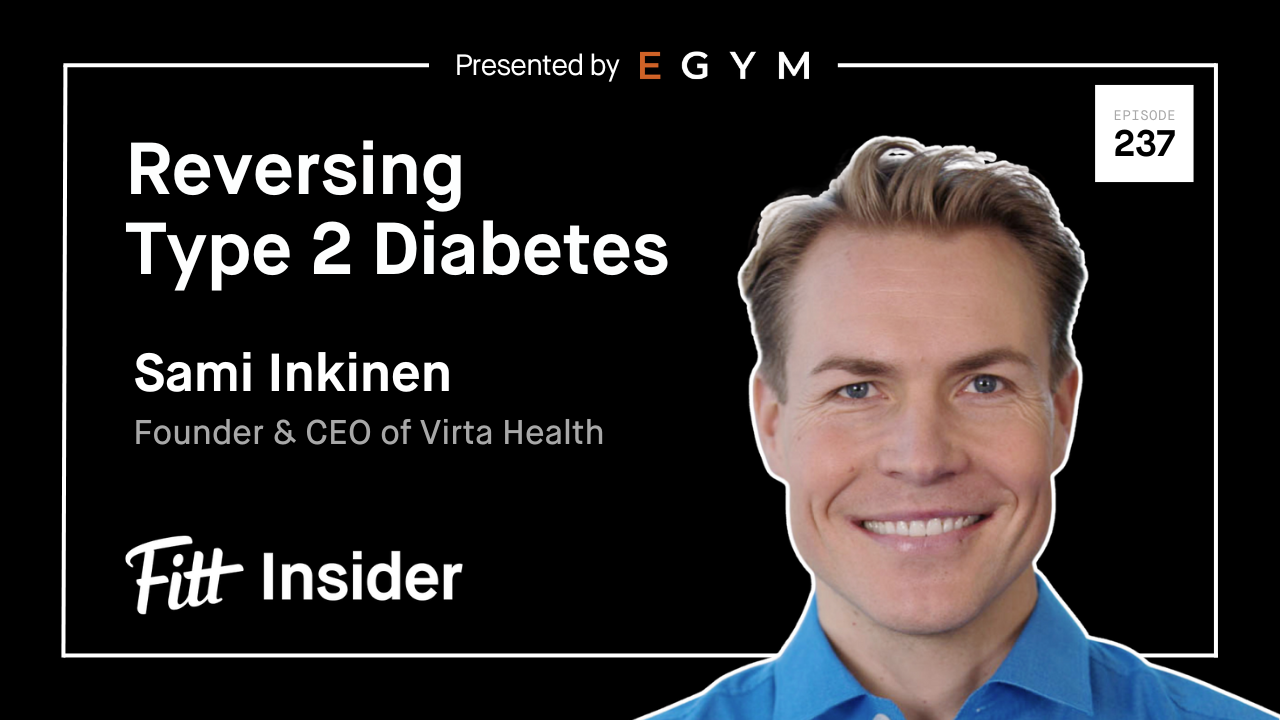
Virta Health founder & CEO Sami Inkinen discusses the metabolic health crisis.
Leading with lifestyle, Virta takes a bottom-up approach to diabetes management. Leveraging ketogenic nutrition therapy, the company is tackling root causes of type 2 diabetes.
We also cover: the rise of GLP-1s, reversing diabetes, and the harm of ultra-processed foods.
Listen to today’s episode here.
💼 Xponential Fitness removes CEO
The boutique studio franchisor suspended founder and chief exec Anthony Geisler amid expanding federal investigations.
On the case. The US Attorney’s Office (USAO) for the Central District of California and the SEC are looking into reports that XPOF provided false or misleading information to investors.
Highs and lows. Xponential owns 10 brands across fitness and wellness, including Club Pilates, CycleBar, and Rumble. Going public in 2021, the company has grown to 3K+ global studios and more than $1B in annual sales
Red flags. Last year, franchisees said XPOF “deliberately misled” them about the strength of its brands while concealing losses suffered by other operators. Around the same time, the SEC launched an investigation into the company.
Now, as the USAO follows suit and Geisler is forced out, Xponential’s problems are mounting.
Looking ahead: Details are sparse, but smoke is forming. Best case, Xponential is cleared of any wrongdoing. Worst case, we have another F45 situation on our hands. Time will tell.
🍼 Infant nutrition gets a boost
Grass-fed infant formula brand ByHeart raised $95M for its whole milk-based blend free of corn syrup, maltodextrin, soy, or palm oil.
Status quo. With excess sugar and calories, just 35% of leading baby food products meet the WHO’s nutritional standards. But, four major corporations control ~90% of the formula industry.
Appealing to wellness-minded parents, ByHeart became the first formula manufacturer to gain FDA registration in 15 years.
New wave. For infants and big kids, better-for-you brands are scaling.
- Selling protein-packed meat pouches, Serenity Kids recently added $52M.
- A hit with momfluencers, Amara raised $20M for organic baby snacks in March.
- Formula brand Bobbie raised $70M and acquired a production plant last year.
Meanwhile, with $100M+ in annual sales, actress Jennifer Garner’s Once Upon a Farm has sights set on an IPO.
Punchline: Sorely lagging in regulation and innovation, the baby food category is ripe for disruption. Speaking to the pain points of health-conscious parents, startups are poised to win.
Presented by imaware
🧪 At-home Lab Testing Made Easy
Personalization is everything in health, wellness, and fitness.
Powering private-label at-home lab tests, imaware helps brands deliver the transparent data consumers expect.
Custom-made for gyms, supplement companies, and everything in between, imaware unlocks actionable insights to enhance well-being.
Build a panel that meets your user’s needs, apply your branding, then let imaware’s proprietary platform do the rest — tracking trends and guiding health optimization.
Partner with imaware to upgrade your value prop, keep consumers locked, and join the hyper-personalized health revolution.
💪 Hydrow enters connected strength
The connected rowing company acquired Speede, makers of smart strength equipment.
Bulking up. Speede uses AI, sensors, and motors to deliver up to 2K pounds of resistance, without physical weights — primarily targeting athletes and B2B clients.
Already delivering a full-body workout, Hydrow is leaning into demand for weight training, with plans to release a consumer strength product next year.
Push-pull. As connected fitness companies confront a post-pandemic slowdown, Hydrow hopes to pull ahead.
Facing headwinds, MIRROR shuttered, Tonal endured a down-round, and Peloton’s CEO exited amid new job cuts. Elsewhere, CITYROW sold to WaterRower, FORME bought CLMBR, and BowFlex filed for bankruptcy.
Meanwhile, Hydrow said sales are up 23% YoY, with Amazon sales climbing 273% YoY through March 31, per CNBC.
Looking ahead: At-home fitness is consolidating, and operators must now prioritize profitable growth — entering new categories through innovation, acquisitions, or both.
📰 News & Notes
- Solidcore explores a sale, could fetch $750M.
- Padel Haus readies social padel club in Denver.
- Noom pairs FitOn workouts with weight loss meds.
- Oura unveils features for heart age, cardio capacity.
- Eight Sleep debuts redesigned smart mattress cover.
- Sauna House plans 2025 expansion to Austin, Texas.
- The Vitamin Shoppe launches GLP-1 telehealth service.
- Y7 Studio launches hot sculpt class, tests cold plunge concept.
- WHOOP names Cristiano Ronaldo global ambassador and investor.
- LA Fitness parent opens third Club Studio location, 12 more underway.
- Summa Labs, Harvard’s Wyss Institute partner on hormonal health diagnostic.
- NBA taps GE Healthcare, Springbok Analytics to quantify physical toll of season.
- On the job hunt? A leading activewear brand is hiring an NYC-based Athlete Marketing Manager. Find more open roles at Fitt Jobs.
💰 Money Moves
- Endurance event registration platform Movemint closed an undisclosed pre-seed round led by Underscore VC, with participation from Fitt Capital and others.
- AI sports nutrition platform Hexis landed £1.6M ($2M) in a pre-seed round from sports investment firms APEX and Sport Republic.
- Digital pediatric therapy provider Backpack Healthcare (fka Youme Healthcare) closed a $14M Series A round led by PACE Healthcare Capital.
- PE firm Nameless CPG acquired menopause supplement brand Wile.
- Mushroom meat maker Meati secured over $100M in a C-1 round led by Grosvenor Food & AgTech.
- Chronic disease care platform Ciba Health raised $10M in an oversubscribed Series A round led by DigiTx Partners.
- Clean skincare brand Three Ships Beauty raised a CA$3.5M ($2.56M) financing round led by BDC Capital’s Thrive Venture Fund.
- Youth Inc., a youth sports digital media network co-founded by ex-NFLer Greg Olsen, landed $4.5M in a seed round led by Will Ventures.
- BridgeAthletic, provider of strength and conditioning software for coaches, raised undisclosed funds from W3 and acquired athlete learning management system Game Plan.
Today’s newsletter was brought to you by Anthony Vennare, Joe Vennare, Ryan Deer, and Jasmina Breen.
